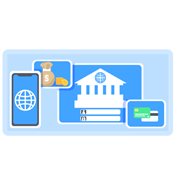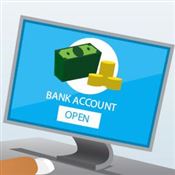How Long Does It Take to Open a Bank Account
Opening an account can be done in minutes at most banks. So, make sure your requirements are ready to avoid delays. Read on for more details.
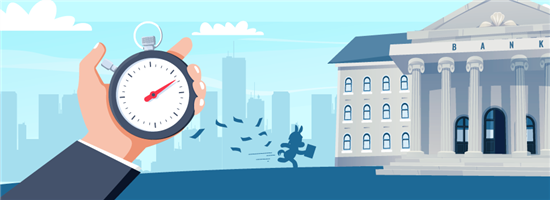 |
- How long does it take to open an account?
- How long does it take to get approved?
- How long does it take to get a Debit Card?
- How long does it take to get a Check Order?
- What affects the application process time?
- What do you need to open an account?
- How to open an account?
- What type of bank should you choose?
Looking to open a bank account but unsure how long it takes?
No need to fret because it is actually a quick and easy process when you're prepared.
Continue reading to know how long it usually takes. Plus other requirements you should know when opening a bank account.
How Long Does It Take To Open An Account?
For the most part, filling out an application form can be done in under 5 minutes.
But the actual timeframe differs per financial institution, here's an overview of how long it can take:
Traditional Banks - 10 to 20 minutes
Contrary to popular belief, opening an account in person can also be quick and efficient.
If you set an appointment prior, you can accomplish the task in less than 30 minutes especially with the help of a staff. But, it may take longer if you just walk-in.
Online Bank and Fintechs - 3 to 15 minutes
Opening an account with an online bank is typically faster and more streamlined compared to brick-and-mortar banks.
The application process is designed to be efficient and convenient. In fact, you can do it in the comfort of your home or wherever you are.
Credit Unions - 3 to 20 minutes
Opening an account with a credit union can take a similar amount of time as with a traditional in-person bank or an online bank.
However, do note that you typically need to be a credit union member to open one. If not, they may ask for a small donation to a specific non-profit organization upon opening an account.
Chase Total Checking, Chime, and Discover® Cashback Debit are bank accounts activated immediately after submitting your application online. Such accounts allow customers to sign up and get started right away, usually without needing in-person visits or extensive paperwork.
How Long Does It Take To Get Your Account Approved?
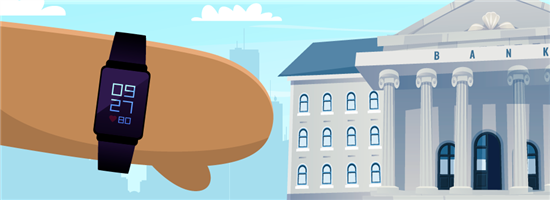 |
If you submit complete documents and information, approval can typically take just a day or two.
Some banks do instant approvals, meaning you can start using your account right after submitting your application.
But, others may need further verification for security reasons which could entail a slightly longer waiting time.
Here are some banks and its respective approval times:
| Bank of America | 1 to 2 business days[1] |
| Capital One | 0 to 72 hours[2] |
| HSBC | Several days |
| Ally Bank | 24 hours[3] |
| Regions Bank | Up to 10 business days[4] |
| SoFi Bank | Up to 2 business days |
Opening a Chase account can take several minutes, whether online or in person. Your new Chase debit card will arrive in about a week after account opening.
How Long Does It Take To Get A Debit Card?
It usually takes 4 to 10 business days to send a debit card by mail to your address after your account is approved. But, some banks may give you a virtual card that you can use right away.
Some banks offer a personalized option with a photo or unique design; hence, delivery time can take longer.
How Long Does It Take To Get A Check Order?
Receiving your checkbook order takes 10 to 15 business days from account approval. Note that delivery time will take several more days for personalized checks.
Similarly, larger check orders may take slightly longer to process and deliver to your address.
What Affects The Application Process Time?
The time it takes to get your account up and running depends on the following factors:
Type of Account
Checking accounts, savings accounts, money market accounts, CDs, and business accounts all have different processing times.
It really depends on the complexity of the account. Some may require more documents which can take longer to verify and approve.
Bank Policies
Banks and financial institutions all have different policies they follow.
Some are more streamlined and efficient, resulting in faster application approvals.
Completeness of Documents
When you're opening a bank account, you must have all the necessary requirements with you already.
Providing complete and valid documents reduces the chances of delay when the bank is processing your application.
Verification and Banking History
Most online banks use a digital verification system that makes approving applications much faster.
Traditional banks, on the other hand, will check your banking history through ChexSystems or Early Warning Services before they approve your new account. Some online accounts, such as Chime, do not check ChexSystems.
What Do You Need To Open A Bank Account?
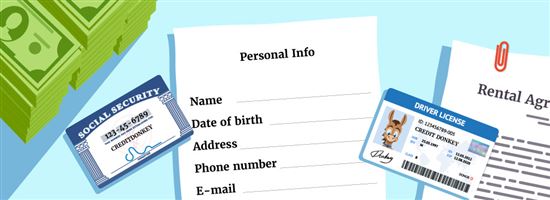 |
To open a personal savings or checking account, many banks will require the following:
- Personal Information
You will need to provide the following information: your legal name, residential address, birth date, contact number, and email address. - Identification
Banks often require you to present or scan your government-issued ID (such as a driver's license or a state ID). - Proof of Address
You may also be asked for proof of residence if you have different addresses on your ID and application form. Simply provide a utility bill, rental agreement, or credit card statement under your name. - Social Security Number (SSN)
Your SSN is often enough documentation to support your account opening application. Some banks would accept alternatives like your ITIN (Individual Tax Identification Number) or passport for foreign nationals. - Funding Method
You can link your existing bank account, make an ACH transfer, or deposit a check to make an initial deposit to your new account.
Generally, the process of opening a checking or savings account is free. However, banks may require an initial deposit ranging from $25 to $100. If there is none, you often have to fund it within a certain number of days to avoid automatic account closure.
How To Open A Bank Account
You can begin the process by following these 3 simple steps at most banks:
- Have your required information ready.
- Fill out the application form with the necessary information.
- Fund your account.
Once approved, set up your online banking and mobile app access to use your new account.
It is typically not difficult to get approved for a bank account, provided that your banking history is generally positive. Requirements for savings and checking accounts are often straightforward, which most people can easily meet.
What To Do If You Can't Open An Account?
If the bank does not approve your account, you have the right to demand an "adverse notice" from them.[5] This indicates the checking account reporting agency where you can request a free copy of your report.
Once the rejection is confirmed, ask for a reconsideration regardless of the reason for denial.
If that doesn't work, you can try your luck with an online bank or a credit union as they are typically more lenient.
You can also consider applying for a second chance account, which caters to individuals with a history of banking issues. However, this type of account usually has more restrictions as it aims to help you rebuild your banking history.
Here are common reasons the bank may deny your new account application:
- Negative marks on your ChexSystems or Early Warning Services report
- History of overdrafts
- Poor credit history
- Incomplete or invalid documents
- Suspected fraud
- Errors on your consumer report
What Type Of Bank Should You Choose?
To help you decide which bank to open an account with, below are some important features of each bank type.
Online Bank
Online banks are best for those comfortable with purely digital transactions.
Since everything can be done online, the application process is often fast and seamless. You can even open an account wherever you are which is incredibly convenient.
Traditional Bank
Traditional banks are slightly more accessible given the luxury of physical locations.
You can also get assistance from employees which is convenient especially if you're applying for an account for the first time.
Additionally, you get the best of both worlds as many traditional banks allow online applications as well.
Credit Union
Credit unions are ideal for residents of certain local communities. They may give you more personalized service and higher savings rates.
If you are interested in opening an account, you are required to buy a share or make a small donation.
Bottom Line
Opening a bank account can be pretty quick and easy, whether you do it online or in person. Your account will be up and running the same day or within a few days of your application.
Just remember to do your research and gather all the necessary requirements to ensure a smooth and easy process.
References
- ^ Bank of America. FAQ: How long will it take to open an account when I apply?, Retrieved 10/30/23
- ^ Capital One. Access your new account, Retrieved 10/30/23
- ^ Ally. What do I need to open a bank account?, Retrieved 10/30/23
- ^ Regions. FAQ: Once I submit documentation, how long will the application review process take?, Retrieved 10/30/23
- ^ Consumer Financial Protection Bureau. When can I be denied a checking account based on my past banking history?, Retrieved 09/14/2023
Write to Penelope Besana at feedback@creditdonkey.com. Follow us on Twitter and Facebook for our latest posts.
Note: This website is made possible through financial relationships with some of the products and services mentioned on this site. We may receive compensation if you shop through links in our content. You do not have to use our links, but you help support CreditDonkey if you do.
|
|
| ||||||
|
|
|
